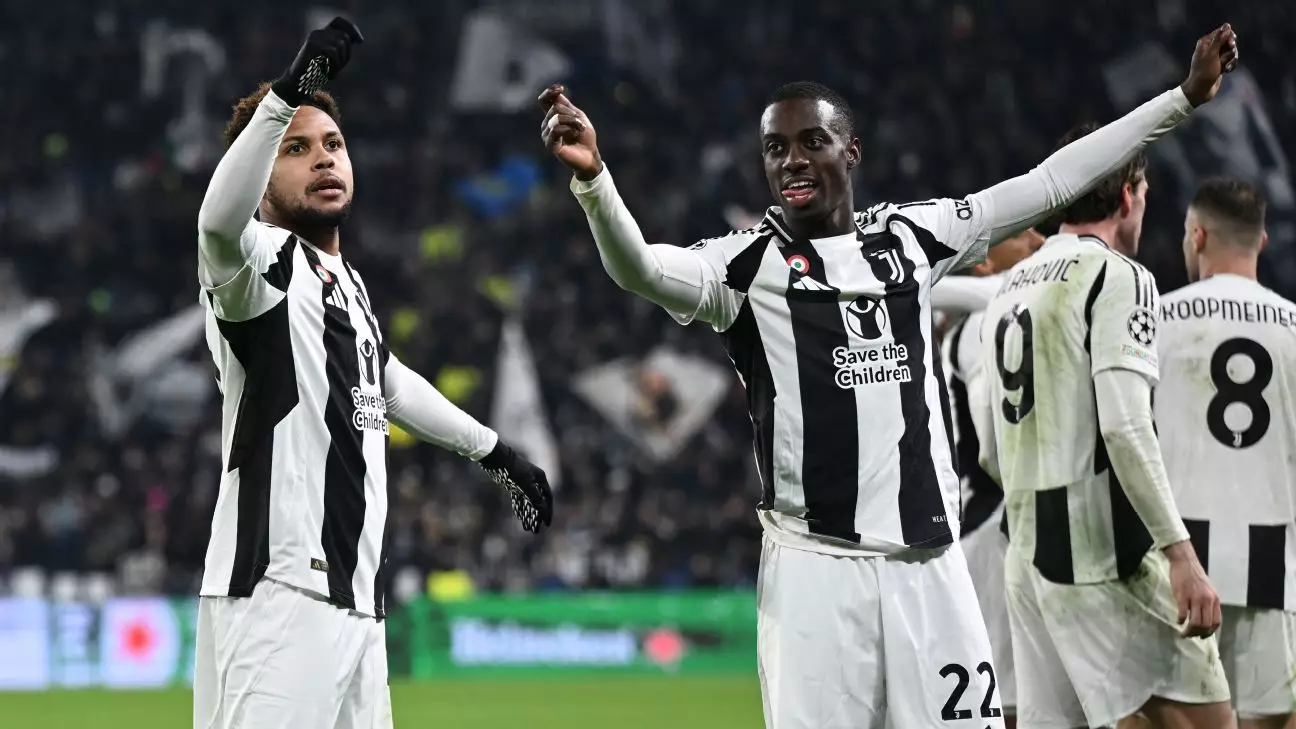In a landmark moment for American soccer, Weston McKennie and Timothy Weah contributed significantly to Juventus’ stunning 2-0 victory against Manchester City in the Champions League. This remarkable achievement not only spotlighted their talents but also etched their names in the history books as the first Americans to collaborate on a goal and assist in the prestigious tournament. Playing at home in Turin, Juventus aimed for redemption after a string of four consecutive draws, and the duo’s synergy became the focal point of their success.
Weah’s brilliant cross into the box showcased his playmaking ability, while McKennie’s exquisite side volley—a deft strike past the Manchester City keeper, Éderson—sealed the historic moment, igniting celebrations and providing a much-needed boost to a Juventus side struggling in Serie A. “It was a big moment for the team with the situation we have been in,” reflected McKennie post-match, encapsulating the significance of the win not only for his personal accomplishments but also in the context of the team’s broader ambitions.
Juventus has faced a turbulent season, languishing in sixth place in Serie A amidst mounting pressure. However, this triumph against a formidable opponent like Manchester City proved to be more than just a victory; it marked a turning point that could reinvigorate the squad’s confidence. In the revamping of the Champions League format, accumulating 11 points and maintaining their position in the knockout rounds became crucial for the storied club, and this win aligns perfectly with their aspirations.
The contributions of McKennie and Weah exemplified a new wave of American talent breaking into the European elite. The duo’s complementarity was not merely a statistical achievement, it radiated promise for the future of American soccer on an international platform. An entire generation of fans and young players back home can now look up to these athletes as role models, navigating challenges and excelling on the grandest stages.
Despite individual achievements, the lives of American players in elite European football are often fraught with challenges. McKennie conveyed the unique pressures associated with being an American athlete in Italy, a landscape that scrutinizes their performance closely compared to local talents. “I like when people doubt me, and sometimes I play my best football when people doubt me,” he expressed, revealing an undercurrent of resilience that fuels his competitive spirit.
This assertion underscores a significant psychological aspect often overlooked in the discussions about international players adapting to European leagues. The scrutiny can be intense, coupled with the expectation to perform at par or beyond that of native players. Nevertheless, both McKennie and Weah have carved out their niche, bolstering the narrative that American talent can excel in one of football’s most intense environments.
Juventus’ head coach, Thiago Motta, lauded McKennie’s unique skill set, emphasizing his versatility and impressive physicality. “Weston can do everything,” Motta noted, hinting at the tactical importance of having players who can adapt to various match scenarios. McKennie’s ability to make timely runs and contribute defensively allows for a more dynamic team structure that can evolve depending on the opponent faced.
As Juventus continues to challenge the elite of Europe, integrating players with unique playing styles will remain pivotal to their strategy moving forward. The contributions of Weah and McKennie symbolize not only a tactical advantage but also a burgeoning movement in American soccer that seeks legitimacy and respect on European soil.
The combination of McKennie and Weah’s efforts against Manchester City transcends a single match; it represents a crucial chapter in the evolving narrative of American soccer. With young talents like these excelling in elite European leagues, the perception of American players abroad is slowly but surely shifting. As Juventus looks to reclaim their stature among the elite, the partnership of these athletes could play an integral role in not just the club’s renaissance, but also in further solidifying the United States’ presence in the footballing world. The implications of their performance extend well beyond their individual moments—they inspire the next generation and affirm that dreams of competing at the highest level are, indeed, attainable.

